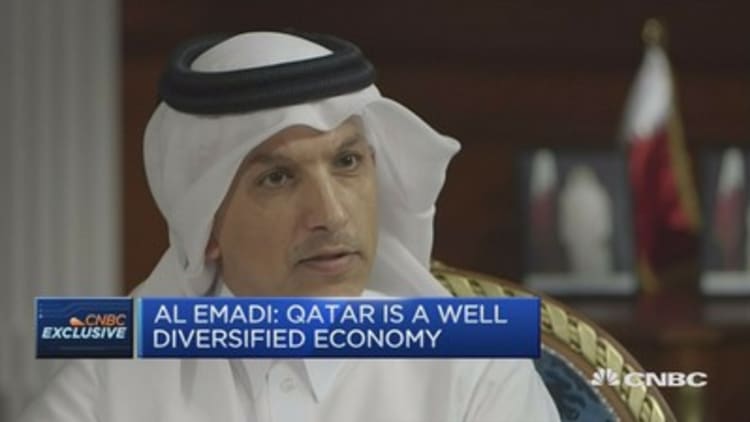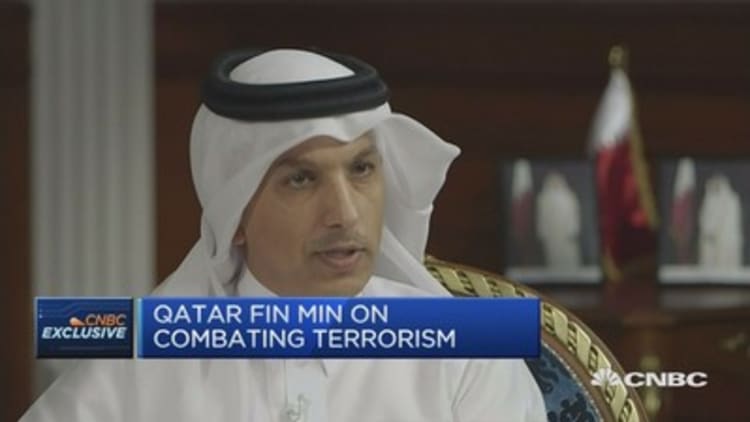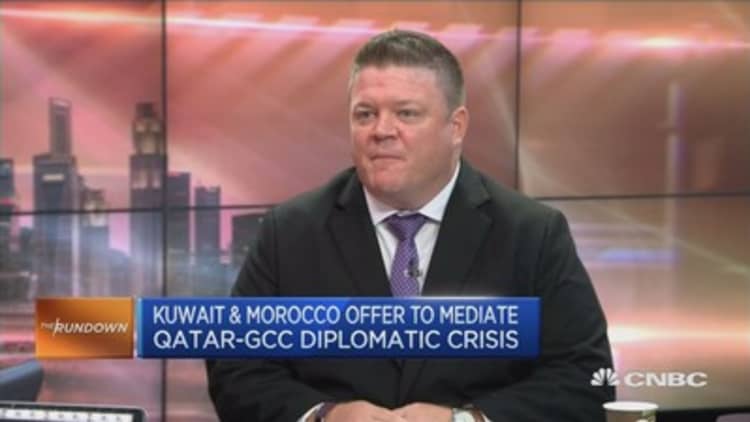


Doha won't be the sole loser in an ongoing spat between the oil-rich monarchy and seven Middle Eastern governments, warned Qatari Finance Minister Ali Shareef Al Emadi as he stressed his country's resilience to any potential economic shocks.
"A lot of people think we're the only ones to lose in this... if we're going to lose a dollar, they will lose a dollar also," he said in reference to Gulf Cooperation Council nations.
Speaking to CNBC in an exclusive interview, the minister called the political rift "very unfortunate" as it inconvenienced human lives. "Families are being disrupted around these countries."
Saudi Arabia, Bahrain, the U.A.E. and Egypt are among the leading Arab governments who cut ties with Doha last week, accusing the oil-rich monarchy of supporting terrorism, as President Donald Trump urges Muslim leaders to take a stronger stance against extremists. The four Arab states have said they would close air and sea transport links with Doha, with Riyadh recently closing its land border.
Qatar is dependent on Gulf neighbors for food imports to feed its 2.5 million strong population — the bulk of which are expatriates — and reports have emerged of panic buying at supermarkets amid fears of a food shortage during the Muslim holy month of Ramadan.
However, Al Emadi was quick to dismiss those concerns.
Previously, Doha imported food and other goods from places as far as Brazil and Australia so the government will continue that, he said. Whether its Turkey, the Far East or Europe, Doha will ensure that it has enough partners to get things done, he continued.
"We are going to make sure that we are even more diversified than we were before."
The minister, who is also president of Qatar Airways' executive board, defiantly brushed away concerns of a financial market meltdown. The Doha index tumbled 7.1 percent last week, according to Reuters, while the Qatari riyal has been falling against the greenback on worries of capital outflows.
While the reaction was "understandable," there was no need to worry as Doha has all the tools required to defend its economy and currency, Al Emadi said.
"Our reserves and investment funds are more than 250 percent of gross domestic product, so I don't think there is any reason that people need to be concerned about what's happening or any speculation on the Qatari riyal."
"We are extremely comfortable with our positions, our investments and liquidity in our systems," he continued, adding that he saw no need for the government to step into the market and buy bonds.
"We're still a AA country and we're one of the top 20 or 25 globally on our ratings ... so I think we are very much better than a lot of people around us."
"Qatar is always open for business...We have what it takes to defend if we have to do anything locally."


